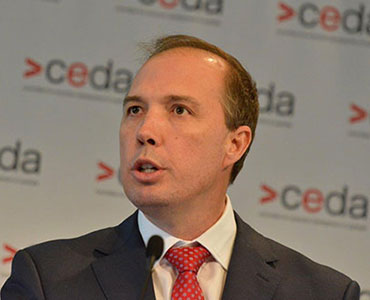While the Australian Medical Association's co-payment plan would benefit doctors, it wouldn't help Government savings, according to Federal Health Minister, the Hon. Peter Dutton.

Speaking at a CEDA healthcare forum in Melbourne, Mr Dutton said: "I note that the current proposal put forward by the AMA with regards to the $7 co-payment, will result in a windfall for doctors, while wiping out 97 per cent of the Government's estimated savings."
Mr Dutton said healthcare expenditure in Australia was clearly unsustainable with 119 per cent growth in the last 10 years.
Of the 240,000 standard General Practitioner (GP) consultations made in Australia per day, four out of five were provided free to the patient, at a cost of $36 per visit to taxpayers, he said.
"With an average bulk billing rate of over 82 per cent, it must be the case, by definition, that many of the people receiving these free services aren't on low incomes.
"Now some argue they pay the Medicare levy. The Medicare levy though, raises $10 billion a year; we spend on Medicare services about $20 billion a year.
"The important point is that the $20 billion continues to grow each and every year, but at a much faster rate than that which we collect through the $10 billion and the Medicare levy as it applies through the tax system.
"Australia's healthcare needs are now very different to the needs the system was originally designed to support.
"Opportunities for reform don't come around very often. I believe we have the opportunity as a country now, to lay the foundations for a stronger more efficient health system.
"Without serious policy change…health expenditure is projected to grow by 70 per cent over the next 10 years."
Mr Dutton said under the Government's proposed healthcare reforms bulk billing will remain, the Government will continue to spend more than $20 billion on Medicare every year and investment in the Pharmaceutical Benefits Scheme will continue to grow.
"Bulk billing, under the proposal we have on the table, remains because we want to make sure that we can take care of those patients who can't afford the $7," he said.